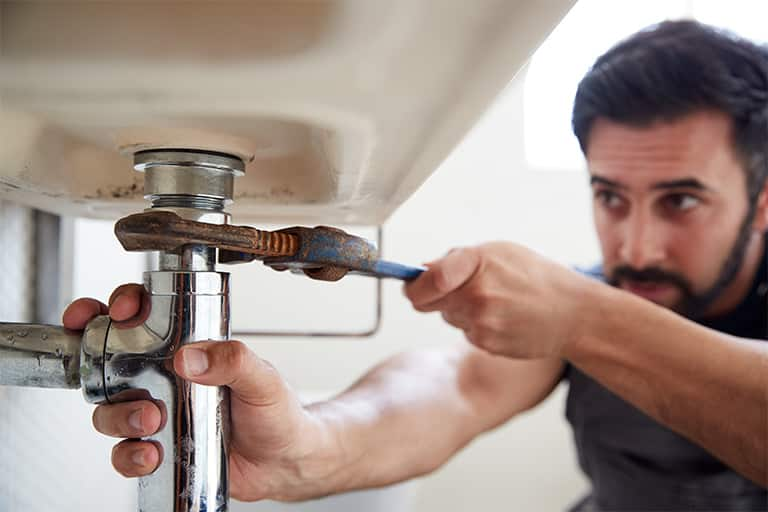Detecting Concealed Water Line Leaks: 6 Smart Hacks
Detecting Concealed Water Line Leaks: 6 Smart Hacks
Blog Article
We have stumbled on the article relating to Detecting hidden plumbing leaks below on the internet and decided it made perfect sense to discuss it with you on this site.

The moment you locate a leak, calling your plumber for repairs is the most effective service. Some small water leakages may not be noticeable. If you can not spot it with your nude eyes, below are some hacks that help.
Early discovery of dripping water lines can minimize a possible disaster. Apart from saving you money, it will certainly lessen the aggravation and aggravation.
Check Water Consumption
Assess your water expenses and track your water intake. As the one paying it, you ought to see if there are any type of disparities. If you identify sudden changes, despite your usage coinciding, it implies that you have leakages in your plumbing system. Remember, your water expense need to fall under the exact same variety on a monthly basis. An unexpected spike in your expense indicates a fast-moving leak.
On the other hand, a steady increase every month, despite having the very same routines, reveals you have a slow leakage that's also slowly intensifying. Call a plumber to thoroughly check your building, specifically if you really feel a cozy area on your floor with piping underneath.
Inspect and Assess the Circumstance
Homeowners must make it a habit to inspect under the sink counters and even inside closets for any bad odor or mold and mildew development. These two warnings show a leak so timely focus is required. Doing regular examinations, even bi-annually, can save you from a significant trouble.
Examine the Water Meter
Inspecting it is a surefire method that helps you uncover leaks. If it relocates, that suggests a fast-moving leakage. This indicates you might have a sluggish leakage that could also be underground.
Asses Outside Lines
Do not neglect to check your outdoor water lines also. Should water seep out of the link, you have a loosened rubber gasket. One small leak can throw away loads of water and also surge your water costs.
Do a Food Coloring Test
When it comes to water consumption, 30% comes from toilets. If the color in some way infiltrates your dish throughout that time without flushing, there's a leak between the tank as well as dish.
Check for discolorations and compromising as a lot of devices and also pipelines have a life expectations. If you presume dripping water lines in your plumbing system, don't wait for it to intensify.
The moment you find a leakage, calling your plumber for fixings is the ideal option. Some small water leaks might not be noticeable. Inspecting it is a surefire means that aids you uncover leakages. One little leakage can throw away tons of water and spike your water bill.
If you suspect leaking water lines in your plumbing system, do not wait for it to rise.
5 Signs that Your Home Has a Hidden Leak
Your water bill is unusually high without explanation
Generally, your water bill tends to stay consistent throughout the year as long as the same number of people live in your household year round. The bill might be higher during certain times of the year, such as summer, when your lawn may require more watering than it does in cooler months. However, if you notice a rise in your water bill that you can’t explain, it’s an indicator that there’s a hidden leak somewhere in your home.
You hear running water
One of the biggest signs that you have a water leak is the sound of rushing water when no plumbing fixtures are on and when no water-using appliances are running. If you hear running water in your walls when no water is being used anywhere in your home, locate your home’s main water shut-off valve, shut off your water supply, and contact a plumber at once.
Your home smells musty
Hidden leaks often occur in dark spaces, such as behind walls or under carpeting. Incidentally, darkness and moisture can create an ideal breeding environment for mold or mildew. If you start to smell mildew or the scent of rotting wood or stagnant water around your home, it’s a fair bet that a leak is the culprit.
You find wet spots around your home
The wet spots usually show up as moist areas in your carpeting. If your home has a basement level, puddles on the floor could indicate a slab leak. Outside, unexplainable puddles or lush, green patches in your yard often mean that there’s a leak in your sewer line or main water line.
You have stains, bubbles, or condensation on your walls/ceiling
Stains or condensation on your walls or ceiling are both major signs of a hidden leak. Also, drywall (AKA. sheetrock) is very absorbent, and as it takes on more water from a leak behind a wall, it will start to bubble, swell, or warp. If you see this happening in your home, don’t wait to contact a plumber before the water damage spreads.
https://www.ezflowplumbingaz.com/blog/2019/june/5-signs-that-your-home-has-a-hidden-leak/

I found that review on Locating water leaks when looking around the search engines. Do you know another person who is occupied with Hacks to detect leaks? Why not share it. Thanks for your time spent reading it.
We've got you! Report this page